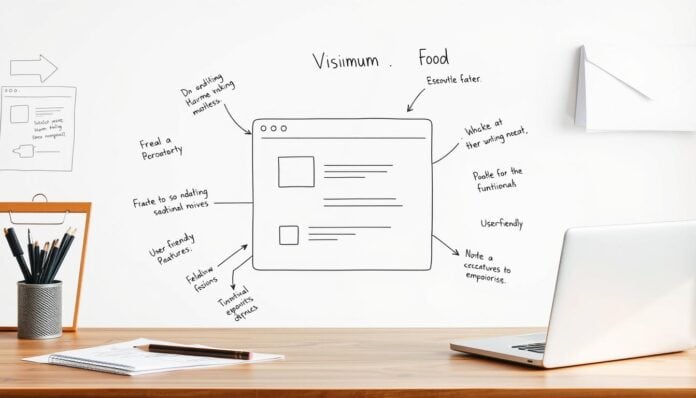How do we tell apart a market-ready product from a basic concept? It’s key to grasp the difference between a Minimum Marketable Product (MMP) and a Minimum Viable Product (MVP). This understanding can change how you view product development and manage its ciclo di vita.
Il Minimum Viable Product (MVP) is all about testing business ideas with little work and money. It’s simple but works, letting early users give important feedback. Big names like Spotify and Airbnb used the MVP way to try their concepts fast. They changed their plans based on what real users said.
Il Minimum Marketable Product (MMP), however, builds on what the MVP proves works. It uses user suggestions and extra features. A great example is the first iPhone in 2007 by Mela. It was made to meet what customers wanted and to stand out in the market right away.
What impact do these two strategies have from starting a project to becoming a hit? Knowing their value can make entering the market quicker, improve user interest, and create loyal fans. This deep dive helps you see how MMP and MVP shape your product’s journey to success.
Understanding Minimum Viable Product (MVP)
What is MVP: an MVP is the simplest form of a product that still attracts early users. Take a food delivery app with just enough features to order and track food. It’s all about doing more with less, fast, to see if a product idea will work, without spending too much.
Do read our detailed article on MVP:
Minimum Marketable Product (MMP) vs Minimum Viable Product (MVP)
In product development, MMP and MVP are both key. But, they have different goals. Knowing how they differ helps make a strategy that leads to success. It reduces risks and helps a product do well in the market.
Key Differences Between MMP and MVP
MVP is about making a simple product to learn and test ideas. It could be a prototype that checks if people like the product concept. MMP, however, is more complete and ready for the market. It’s built to meet what users need and get to the market fast with just the right features.
MVPs are mainly for testing ideas to see what the market wants. MMPs, though, are more finished. They offer a good esperienza dell'utente and an easy-to-use interface. MMPs aim to get a valuable product out quickly without too much extra stuff.
From MVP to MMP
Going from MVP to MMP takes careful planning. Building an MVP can take 3-4 months. It’s all about learning what users expect and improving the product. After testing, you can move on to make an MMP. This version is ready to be shared with everyone.
The first step is to figure out what makes the product special. Then, focus on great design and testing how easy it is to use. An MMP should bring something valuable to users without being too complicated. This way, companies can enter the market faster and save money.
To sum up, MVP helps with gathering info and starting development. MMP, on the other hand, is about bringing a simple but powerful product to users. This approach reduces risks and makes sure both users and the business are happy.
FAQ
What is an MMP?
An MMP, or Minimum Marketable Product, includes user feedback to make a product ready for sale. It aims at a great user experience and being strong in the market.
How does an MMP differ from an MVP?
MMP is the next step from an MVP, focusing more on the user and full market entry. It adds features making the product complete and competitive.
Why is the concept of MMP important in product strategy?
MMP is crucial as it pushes beyond just proving an idea to delivering a complete, sellable product. This leads to happier users and a better chance at success.
What are the steps to transition from an MVP to an MMP?
Moving from MVP to MMP means collecting lots of feedback, choosing features wisely, refining design, and testing thoroughly. It ensures the product is ready for the market.


great job explaining the difference between MVP and MMP, but it would be helpful to include some real-world examples of products that failed because they skipped the MVP stage, highlighting the importance of this initial testing phase.
should improve the common pitfalls to avoid.